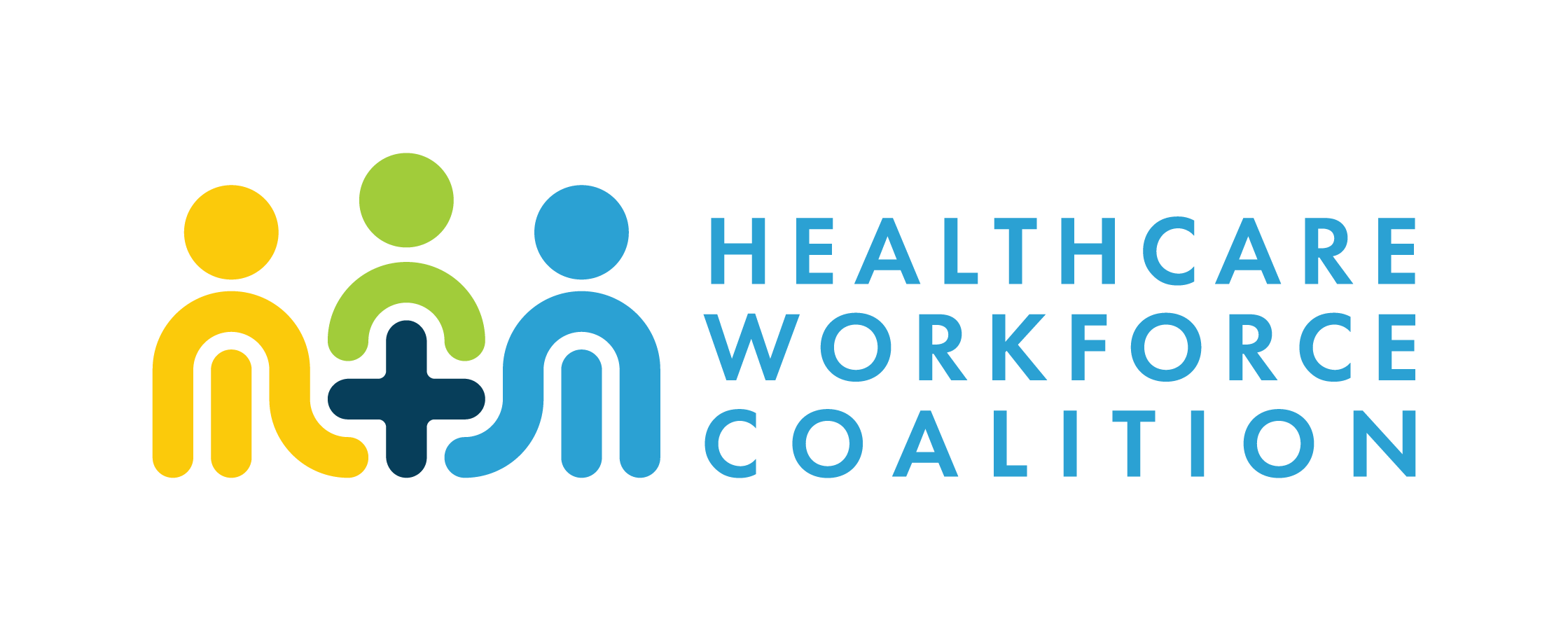Advocates discuss the need for policies to strengthen the nursing workforce pipeline, protect healthcare workers and support workforce wellbeing
WASHINGTON – Advocates with the Healthcare Workforce Coalition are on Capitol Hill today meeting with bipartisan lawmakers and staff in the U.S. House and Senate to discuss how downward and dangerous trends in America’s healthcare workforce and workforce pipeline ultimately threaten patient access to care and our nation’s healthcare delivery system.
Data show, based on current trends and projections, the U.S. healthcare workforce will experience a shortage of 100,000 workers by 2028.
The Healthcare Workforce Coalition supports bills to address healthcare workforce shortages, enhance safety standards and enable greater access to mental health care for healthcare providers. By providing insight to legislators on how these bills will mitigate current workforce shortages and help bolster professionals across the healthcare sector, the HWC hopes to enlist greater support across Congress to ensure these bills become law this year.
Two bills the HWC supports include:
- Reauthorization of the Lorna Breen Act (S. 266/H.R. 929): The Dr. Lorna Breen Provider Protection Act provides funding for mental health training, peer support, and crisis intervention programs.
- HWRA: The Healthcare Workforce Resilience Act (HWRA) aims to address the U.S. healthcare workforce crisis and alleviate pressures on domestic healthcare workers by providing 25,000 unused immigrant visas for nurses and 15,000 for physicians, allowing qualified foreign healthcare professionals to work in the U.S. permanently.
The coalition also supports policy solutions that will strengthen the pipeline and bolster the healthcare education programs that are training the next generation of allied health professionals, nurses, and physicians.
Participants in today’s meetings include representatives from the healthcare education, hospital, nursing, long-term care, and staffing sectors who are sharing their first-hand observations and concerns related to the decline in U.S. healthcare professionals.
- Patty Knecht, Ph.D., RN, ANEF, Chief Nursing Officer of Ascend Learning: “In order to strengthen our healthcare workforce and achieve lasting solutions, we must find and support outcomes-based policies that bolster our pipeline. Without new professionals entering our workforce, the U.S. will continue to experience a severe healthcare workforce shortage for many, many years. To sustainably fill the pipeline, we need to better prepare young learners for healthcare education and jobs, educate students in ed-tech supported programs that lead to proven outcomes, encourage educators to prepare our next generation of nurses and allied health professionals, and expand pathways for those wanting to pursue healthcare careers.”
- Kara Murphy, President of PRS Global: “There are well-educated, trained, and licensed international nurses and physicians ready to join the U.S. workforce to alleviate the incredible pressures on our domestic workforce that is overwhelmed and overworked in many communities. We are urging the offices we meet with today to strongly support the reintroduction of the HWRA to enable more foreign trained nurses and physicians to enter the U.S. workforce and fill dangerous gaps that put American patient care at risk.”
- Kyle Dunlap, MSN, RN, CENP, Senior Director of Post-Acute Services at Fisher-Titus Medical Center in Norwalk, OH: “America’s healthcare workforce shortage impacts all communities, including mine in Northeast Ohio. Workforce shortages make it increasingly more difficult for us to adequately staff our facilities, fulfill patient needs, and invest in the growth and sustainability of our workforce. We strongly support HWRA and policies that allow international professionals to fill the empty, yet vital, workforce positions we are unable to fill locally.”
To learn more about the Healthcare Workforce Coalition, visit www.healthcareworkforce.org.
